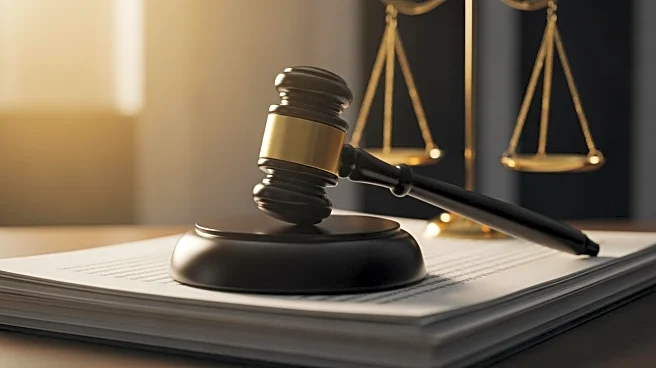What's Happening?
The Trump administration is contemplating targeting the independent litigation authority of federal agencies, contingent upon a Supreme Court decision that could grant President Trump the power to dismiss executive branch employees at will. Federal law
currently allows agencies like the Federal Trade Commission and the Labor Department to represent themselves in court, providing them a degree of independence from direct White House oversight. This autonomy is designed to shield agencies from political influence, but it also complicates presidential control over their policymaking, according to Brett Shumate, head of the civil division at the Justice Department. The Supreme Court is set to hear arguments in the case of Trump v. Slaughter, which challenges a longstanding decision that limits presidential authority to fire certain officials.
Why It's Important?
The potential shift in agency litigation powers could significantly alter the balance of power between the executive branch and federal agencies. If the Supreme Court rules in favor of President Trump, it could lead to increased presidential control over agency actions, potentially reducing their independence and subjecting them to greater political influence. This change could impact how agencies enforce regulations and pursue legal actions, affecting industries and public policy. Stakeholders such as businesses, legal experts, and political leaders are closely monitoring the situation, as it could redefine the operational dynamics of federal agencies and their role in governance.
What's Next?
The Supreme Court's upcoming decision in Trump v. Slaughter will be pivotal in determining the future of agency independence. If the court sides with President Trump, it could lead to a reevaluation of agency powers and their ability to operate autonomously. The administration has already taken steps to assert control over agency legal opinions, as evidenced by a February executive order mandating alignment with presidential and attorney general interpretations of the law. The outcome of this case could prompt further executive actions to consolidate power, potentially sparking legal challenges and political debates over the separation of powers.
Beyond the Headlines
The implications of this potential shift extend beyond immediate legal and political consequences. It raises questions about the ethical and democratic principles underlying agency independence and the checks and balances system. A change in agency litigation powers could lead to long-term shifts in how federal agencies interact with the executive branch, potentially affecting their ability to function as impartial enforcers of law and policy. This development could also influence public trust in government institutions and their ability to operate free from political interference.














